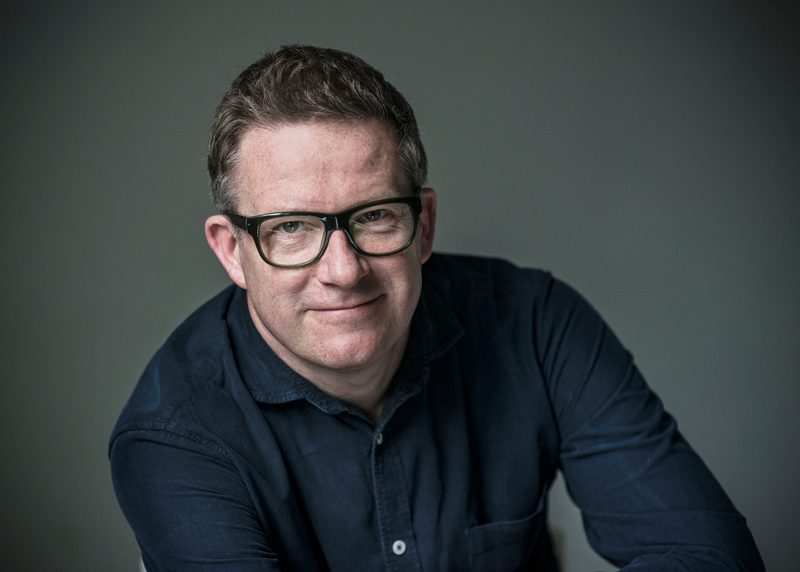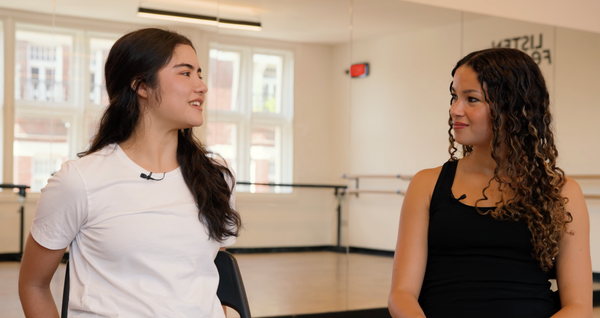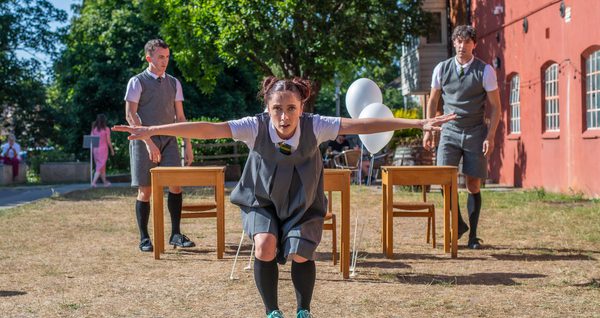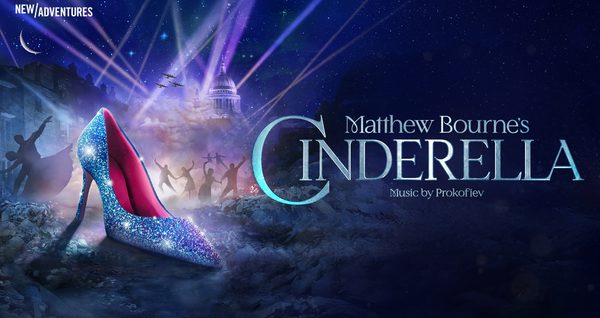
Extracts from The Stage interview with Matthew Bourne by Kate Wyver, 15 December 2023
Read the full article on The Stage.
Putting non-verbal storytelling centre stage, Bourne’s work transforms classic stories with new settings, new character arcs and a new focus on movement that serves the narrative. “Not every single move means something,” he clarifies, “but I’m not fond of pointless acrobatics and tricks.”
His production of Nutcracker! begins and ends in an orphanage, while his version of Romeo and Juliet, which is currently on an international tour, takes place in a kind of asylum for young people. And the world’s longest-running ballet production, Bourne’s Swan Lake, set aside the traditions of the ballet and played it with a nearly all-male cast. The dancers were bare-chested, hip to knee in swaying shredded chiffon. It caused a sensation when it opened nearly 30 years ago and inspired a generation of boys to take up the art form. The production was immortalised in the final scene of the film Billy Elliot, as we see an adult Billy step on to the stage as the lead in Bourne’s staging, and has been revived time and again in the years since its first production in 1995. “It became bigger than any of us could have dreamt of.”
In person, Bourne is affable and chatty, crunching his forehead as he listens, clear and precise as he talks. We chat ahead of the opening night of Edward Scissorhands at Sadler’s Wells. His shows have run at the London dance theatre over the festive season for the past two decades, his work becoming a firm Christmas favourite.
“I’ve never really done any of them intentionally for Christmas,” he muses. “There’s nothing Christmassy about Swan Lake. But some of our shows give the feelings you want at Christmas. You want to laugh and cry and feel warmth, and people know they get that when they come to one of our shows.” For the opening night of Edward Scissorhands, his primary focus isn’t about the dance, or even the audience. “My main concern is making sure the snow doesn’t fall into the orchestra pit,” he grimaces. “The musicians don’t like it.”
What do you wish someone had told you when you were starting out?
Just to trust your instincts. Your instincts, not what you think is popular at the time.
If you hadn’t been a choreographer, what would you have done?
Because I was an avid autograph collector when I was a kid, I’d learned so much about actors at the time, so for a while I thought I might be a casting director.
Who is the most famous person you have met?
Charlie Chaplin. Or Fred Astaire. And Andy Warhol. At the very tail end of their lives. Those are little moments in time that are very special.
If you don’t move with the times and you don’t excite the young, dance could be a dying form.Matthew Bourne
Accessibility to the work is important to Bourne. He wants his stories to be open to everyone, regardless of their prior dance knowledge.
“I like it when people say they didn’t think dance was for them,” he offers. “That they thought it was mysterious and they weren’t going to get it, but they felt at home and comfortable following the story.” He stresses the importance of first experiences of dance, and their possibility of making young or new audiences fall in love with it.
“It’s important that it excites young people to come back,” he says. “Otherwise we don’t have an audience. Dance has to be particularly careful of that. If you don’t move with the times and you don’t excite the young, then it could be a dying form.”
He describes the future of dance as “a bit muddled at the moment”. Ballet companies are, he says, trying hard to adapt to change, but “it will take a while”. In the 1950s, he says, companies were “experimenting with a lot of different kinds of dance. It wasn’t just ballet en pointe, there was lots of work that was influenced by modern dance and vaudeville.” Then it moved to a keener focus on pure ballet with the big classics.
“Now I think we’re going back to where contemporary choreographers are being brought into ballet companies. You have to be extremely versatile as a classical dancer.” He worries, too, that there aren’t enough contemporary companies keeping repertory work alive. “There’s a lot of great work that is disappearing, usually when there’s a choreographer-led company and that choreographer stops working or passes on.” His own legacy isn’t something he’s worried about. “I’ve always said I’ll keep doing it until the audiences don’t want to come.”
There seems to be no fear of that happening. He is not allowed to say what he’s got coming up, but his diary is busy and exciting. For now, he heads back to the preparations for the opening night of Edward Scissorhands.
“I know it’s become a lot of people’s Christmas treats,” he says proudly of his repertoire’s reputation. “It’s nice to be trusted with that, regardless of what the show is. But I’d like to be around for other times too,” he chuckles. “I’m not just for Christmas.”


